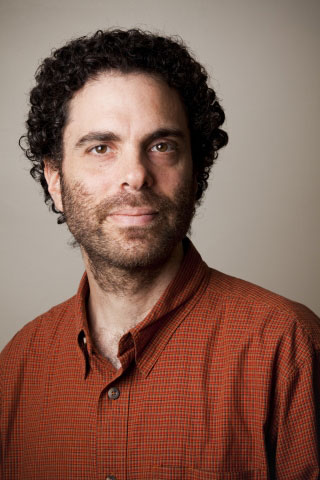 Trials often inflict pain on patients with little scientific benefit
Trials often inflict pain on patients with little scientific benefit
A recent commentary written by McGill’s Dr. Jonathan Kimmelman and colleagues, argues that some painful procedures used in clinical trials, such as serial biopsies of patients with advanced cancer seeking treatment are not well thought out, leading to unnecessary burden for patients in trials.
In the era of personalized medicine, targeted drug development, and cell therapies, a growing number of trials are using research procedures that are risky and painful, and have no benefit for patients who receive them. These procedures are performed because the investigators hope that such procedures will help answer scientific questions.

Together with colleagues at the University of Chicago, Harvard, and the National Institute of Environmental Health Sciences, Kimmelman suggests that such studies should meet a high ethical standard.
“I’ve always believed studies involving painful procedures can play an important role in advancing medicine,” says Dr. Kimmelman, Director of the Biomedical Ethics Unit at McGill’s Faculty of Medicine. “And of course, patients always have the option of declining participation in such studies, but doing so might limit their access to promising drugs.”
“Sometimes these procedures make trials look cutting edge,” Kimmelman said, “but in reality they may be unnecessary and their results rarely inform drug development. We’re arguing that before researchers ask patients to volunteer for painful nontherapeutic procedures in drug trials, such studies should be carefully vetted and meet high scientific standards. My co-authors and I believe these standards are not always met.”
The position of the authors is supported by a University of Chicago study, led by Dr. Mark Ratain (one of the coauthors of the current article), that was published last year in the Journal of Clinical Oncology, demonstrating that the use of biopsies in phase 1 cancer trials has had no identifiable impact on subsequent drug development. While that study focused on cancer clinical trials, “comparable examples can be found in drug trials for most disorders,” Ratain said.
For example, some cell therapy trials in cardiology have involved research bone marrow biopsies or injections of placebo fluid into the heart. These can be unpleasant and – while typically not life threatening – can pose risks for patients. Questions remain as to whether reviewers always carefully think through whether what can be learned from using invasive procedures will truly inform the evaluation of a new drug or cell therapy.
“We all agree that the risks of such procedures must always be clearly explained to potential participants as well as justified by the potential gains in scientific knowledge,” notes Kimmelman. “However, we are concerned that ethics committees, funding bodies, sponsors, and regulators do not ask the necessary questions about why studies that include painful procedures may be necessary, and what exactly will be learned from them. We’re not arguing against such procedures. Instead, we’re arguing for better scientific justifications when they are employed.”
“Patients are being coerced into participating in these risky procedures in order to gain access to exciting new therapies, as they are often mandated by the sponsors of the trials; both pharmaceutical companies and the National Cancer Institute,” Ratain said. “While such studies have the potential to generate important knowledge if properly designed, they are more often implemented without a statistical plan and with poor controls – and thus could be deemed unethical.”
